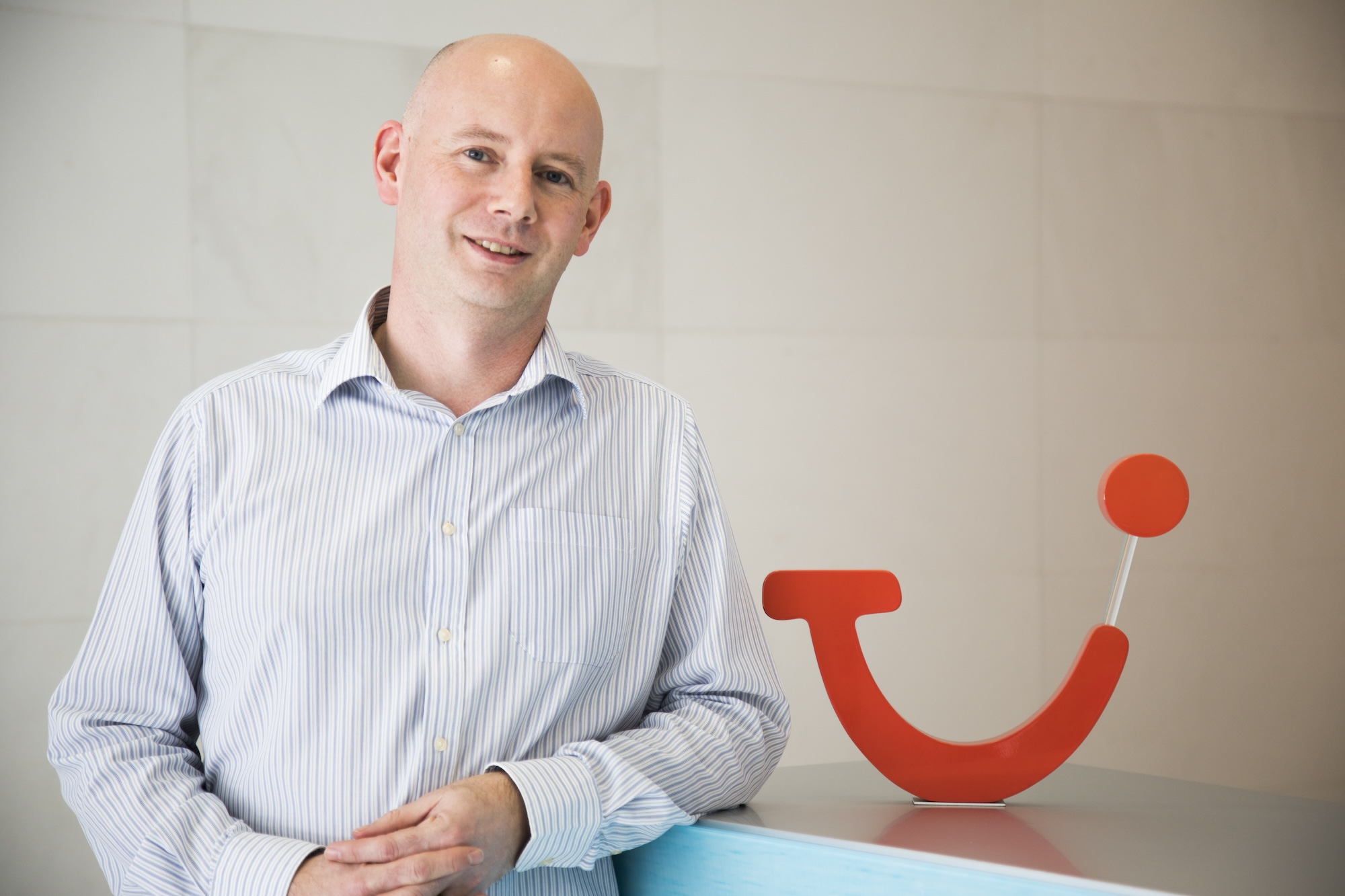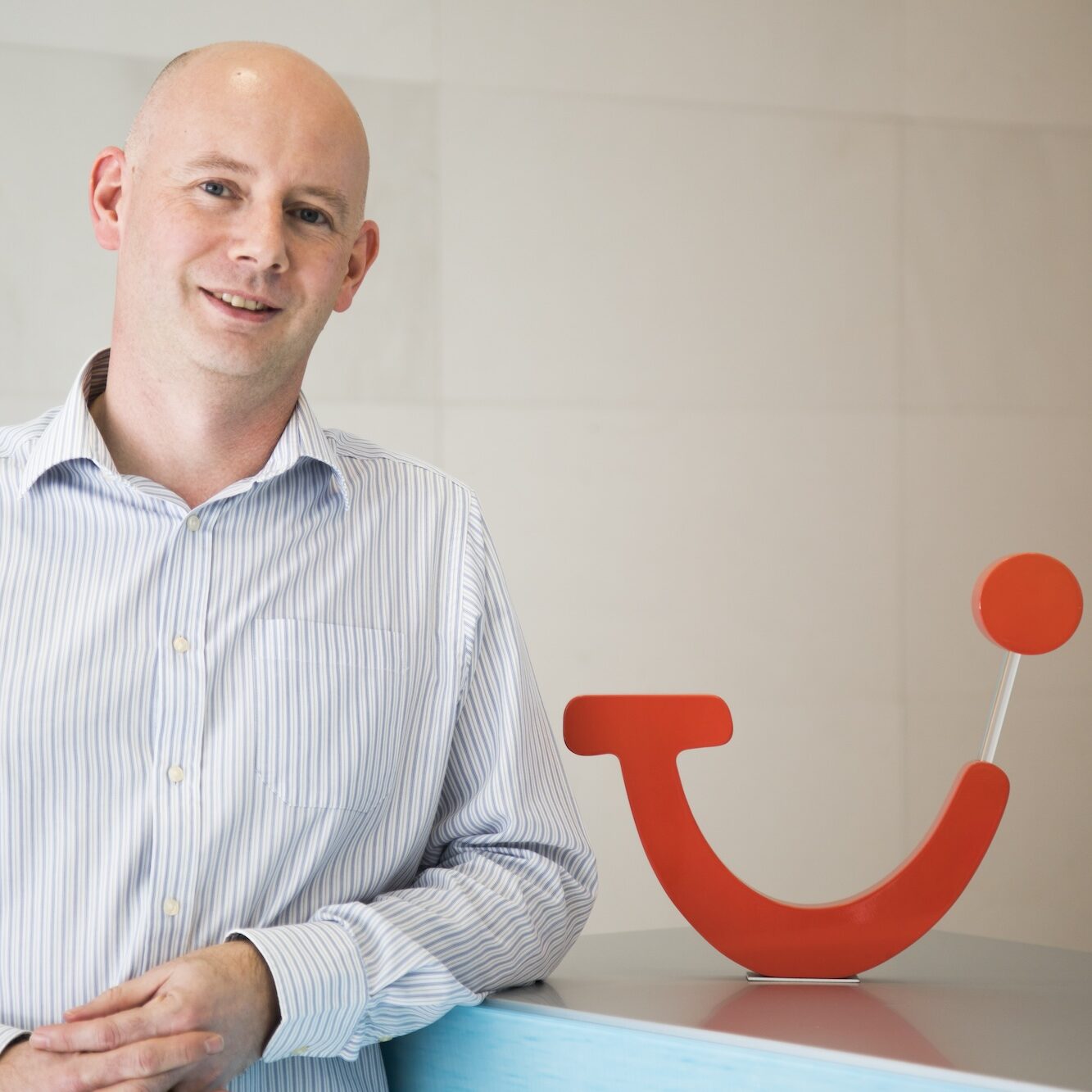
“Build something fresh and unique that can scale to millions of people”
Chris Carmichael
Inspiring impact
Interview with Chris Carmichael
Meet Chris, a seasoned corporate innovation executive who focuses on the practical implementation of innovative technology in travel, enhancing the holiday experience for over 20 million people a year.
Chris Carmichael
Head of Corporate Innovation
TUI Musement

Chris Carmichaeal
Head of Corporate Innovation TUI Musement
Share this interview on
About Chris Carmichael
Chris Carmichael heads the Corporate Innovation team at TUI Musement, within the Tours & Activities division of the renowned TUI Group. He specializes in leveraging innovative technology to bring practical benefits to the business, with expertise in digitizing travel experiences from the early developments of mobile technology and web 2.0 to exploring emerging tech like virtual reality and AI. His team aims to develop new products focused on enhancing the guest experience for more than 20 million people annually. Chris has been deeply involved in the travel industry since 1991 and in online travel since 1997, contributing to significant customer-oriented innovations and pilot projects for both British Airways and TUI.
Can you describe how TUI collaborates with startups to fuel innovation within your industry?
We speak to a lot of startups and look for things that will help our business. Generally, at TUI Musement, when we find something we want to try, we engage with startups as a customer. That often means we run a proof of concept (POC) together with clear aims, and then, if agreed, we will transition to becoming a customer. One challenge we face is ensuring that the startup can scale to support our operations; we work in over 100 destinations and have millions of customers, and generally, early-stage startups are not ready to work at our scale.
What strategies do you employ to identify potential startup partners that align with your company’s vision and goals?
We learn about startup solutions in three main ways. Firstly, we collaborate with incubators and investors like Plug & Play to keep track of the wider market, both within our industry and beyond. Secondly, we receive a lot of direct inquiries. For instance, I regularly get contacts through LinkedIn and if something stands out as interesting or new, I will follow up with a call. Finally, when we have a specific need we’ve identified, we conduct the usual web searches and consult our network.
Could you discuss any programs or initiatives that TUI has established to engage with startups more effectively?
At TUI, we hold a regular Innovators Forum where individuals responsible for or interested in innovation come together to share updates and insights. This helps us identify key personnel within the company who are visionary about working with startups and sharing best practices. Additionally, we maintain partnerships like the one with Plug & Play and engage in regular startup scouting, conference outreach, and LinkedIn networking to ensure we are continually interacting with and evaluating startups.
How does the corporate development team at TUI support startups during and after the integration process?
This varies from project to project. A recent startup engagement required us to implement a new layer so we could stream data in a new format to and from the startup, involving extensive development and planning between our internal team and the startup. Other times, the product has been standalone and thus required very little interaction.
Can you share a success story of a startup collaboration that had a significant impact on your business?
One of our recent major successes involved a startup called Mobi Systems from Boston. Mobi introduced some remarkable AI tools for optimizing transfer route planning, which we integrated into our platform. This has enabled dynamic planning and optimization of the 28 million customer journeys we manage each year, whether by bus or private transfer. By forming a dedicated team to work with Mobi, we were able to circumvent common startup/enterprise issues, allowing everyone to focus on the task at hand. As a result, we had the MVP live at a destination within a few months, and now we use the platform for our dynamic planning worldwide.
How does TUI balance the entrepreneurial spirit of startups with the structured processes of a large corporation?
Balancing how a startup works versus a corporate environment is complex and can derail a project if handled poorly. In our case, startups or scale-ups usually work with our Innovation team, which is experienced in managing different demands. Our Innovation team acts as a buffer between the two sides, meaning the startup interacts with just a few empowered and experienced individuals. Behind the scenes, we ensure simple contracts and ready access to funding to accelerate progress. However, we still exercise caution in critical areas like data security, privacy, and customer protection to ensure all parties are safeguarded.
What measures are in place at TUI to foster an environment where startups can thrive within a large corporate structure?
Key measures include ensuring quick access to legal and financial resources within TUI to enhance agility and limiting the startup’s exposure by having a dedicated team handle the complexities. This setup allows the startup to remain focused on what they excel at, without being overwhelmed by the scale and intricacies of the corporate environment.
In your experience, what are the biggest challenges when aligning a startup’s technology or products with TUI’s existing offerings?
The basic alignment of what the product does is usually clear—that’s why we’re in discussions. However, issues often arise around the supported methods of implementation, balancing quality against risk, and most significantly, scalability. There’s a vast difference between a startup developing a solution that functions for a few thousand people in one city and scaling it to serve millions worldwide. Additionally, our business adds extra complexities as we operate in spectacular destinations where network and other infrastructure may not be as robust as in major cities.
How does TUI structure partnerships with startups to ensure mutual benefits and sustained innovation?
We typically engage startups as suppliers under specific contracts linked to agreed payments. Beyond this contractual relationship, the startups gain access to a wealth of knowledge from TUI that can help refine their products. Conversely, TUI benefits by acquiring and influencing the development of these contracted products, guiding their future direction.
How does TUI ensure compliance and alignment of values when working with younger, potentially more agile startup teams?
Age and agility aren’t usually issues for us, as we’re adaptable too. The main differences lie in our approaches to risk and scaling. Startups often focus on developing the next feature and making it work, whereas corporates think about how to support that feature for the next decade while adhering to data security and privacy standards. There’s a lot we can learn from each other in these areas.
How do you see the future of collaboration between large corporations and startups evolving in the next few years?
Over the past few years, there has been a growing interest from corporations in startups, primarily viewing them as venture opportunities to profit from their growth or exit. However, this approach may decrease as corporations generally have different risk profiles compared to specialized venture organizations. I hope this interest will maintain its momentum, with more corporations looking to collaborate and partner with startups, benefiting both their businesses.
What advice would you give to startups looking to make themselves attractive partners for large companies like TUI?
Bring us something fresh that we haven’t already seen dozens of times. Clearly explain what your product does and why it’s unique right off the bat—most cold emails or contacts tend to be ignored if not communicated effectively. Keep in mind that our large IT organizations can handle the basics just as well as you can. Also, we’re more risk-averse and won’t compromise on security and data privacy. Lastly, we need solutions that scale; a product that only works in one country, city, or scenario isn’t going to cut it for us.
Are there specific industries or technological developments that you are currently targeting for startup collaborations?
Right now, there’s nothing specific on my radar, but I’m closely monitoring developments in AI, Web3, and wearable XR. I believe these three areas are poised to significantly transform how we interact with customers in the future.
Author: Daniel Rongo
Founder at Industry Gap
Connect with me on LinkedIn